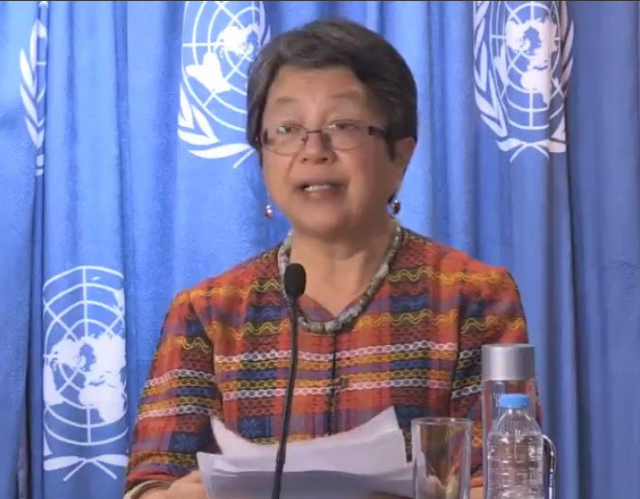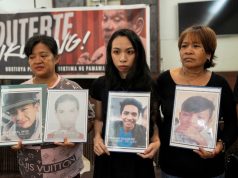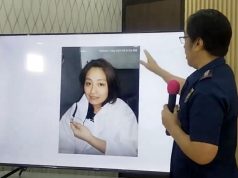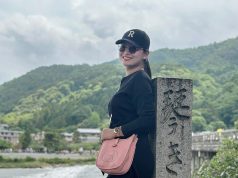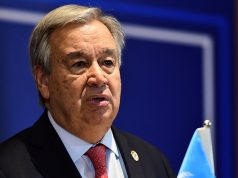MANILA, Philippines — Fellow human rights experts of United Nations special rapporteur on the rights of indigenous people Vicky Tauli-Corpuz slammed her inclusion in a list of more than 600 persons the Department of Justice wants declared “terrorists,” calling it “an unacceptable attack” against her by the government.
Human Rights Watch, meanwhile, called the list, part of the DOJ petition seeking the designation of the Communist Party of the Philippines and the New People’s Army as “terrorist organizations”, a “virtual government hit list,” pointing to “a long history in the Philippines of the state security forces and pro-government militias assassinating people labeled as NPA (New People’s Army) members or supporters.”
“The Duterte administration should publicly reject this petition and ensure the safety of those listed in it — or risk being complicit in the resulting crimes,” the watchdog said.
Tauli-Corpuz, in her own statement, denounced her inclusion in the list and stressed that she was “not connected at all in anyway to those organizations nor do I have any knowledge, much less participation, with the alleged incidents cited in the petition.”
“I will address this baseless, malicious and irresponsible inclusion of my name even as I am consulting my lawyers on what legal courses of action to take to clear my name and even make accountable those who put my life and security at risk,” she said.
(ALSO READ: PH govt seeks ‘terrorist’ tag for 600 alleged communist guerrillas)
The petition describes Tauli-Corpuz as a purported member of the rebels’ Ilocos-Cordillera Regional Committee.
A Kankana-ey from the Cordillera region, Tauli-Corpuz has been U.N. special rapporteur since 2014. The founder of Tebteba, the Indigenous People’s International Centre for Policy Research and Education, she served as chair of the U.N. Permanent Forum on Indigenous Issues from 2005-2009, and received the Gabriela Silang Award in 2009 from the National Commission on Indigenous Peoples.
“We are shocked that the Special Rapporteur (Tauli-Corpuz) is being targeted because of her work defending the rights of indigenous peoples,” Michel Forst, the special rapporteur on the situation of human rights defenders, and Catalina Devandas Aguilar, chairperson of the Coordination Committee of the Special Procedures, said in a statement.
They noted that Tauli-Corpuz’s inclusion in the petition “comes after the public comments made, jointly with other special rapporteurs, in relation to the militarization, attacks and killings of indigenous Lumad peoples by members of the armed forces in Mindanao.”
This, they said, made the accusation “an act of retaliation” by governmentT.
In late December last year, Tauli-Corpuz and Cecilia Jimenez-Damary, special rapporteur on internally displaced people, issued a statement urging the government “to observe its obligations under international law to protect the human rights of indigenous peoples, including in the context of armed conflict,” amid the displacement of thousands of lumad in Mindanao.
Forst and Aguilar pointed out that the accusation against Tauli-Corpuz “is taking place in the context of widespread extrajudicial executions and ongoing attacks against voices who are critical of the current Government, including human rights defenders.”
They also noted that President Rodrigo Duterte “has himself publicly intimidated special rapporteurs.”
Agnes Callamard, the special rapporteur on extrajudicial killings, has regularly been singled out by Duterte for invective-laden diatribes because of her comments on the thousands of deaths associated with the government’s war on drugs.
Duterte has refused to invite Callamard to investigate the drug war killings unless she agrees to such conditions as debating him in public and submitting herself to questioning, which she says violate her mandate. Recently, presidential spokesman Harry Roque claimed the government was open to inviting special rapporteurs except Callamard.
Forst and Gauilar called on the government “to immediately drop these unfounded accusations against Ms. Tauli-Corpuz and to ensure her physical safety and that of others listed” and reminded it of its “obligations under the Convention on the Privileges and Immunities of the United Nations of 1946, which sets out that United Nations experts have immunity from legal proceedings of every kind of spoken and written acts undertaken in the course of their mandated work.”
HRW Philippines researcher Carlos Conde, on the other hand, said “government accusations that international human rights experts have links to the NPA seek to undermine the valuable work they do to promote accountability for rights abuses.”

